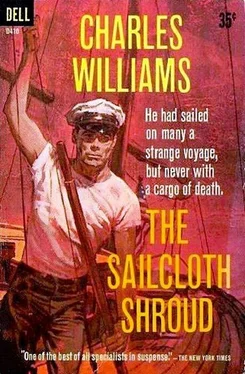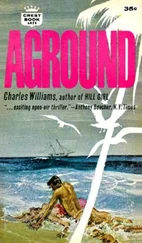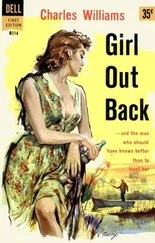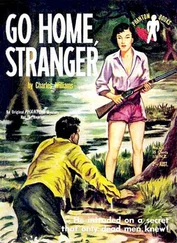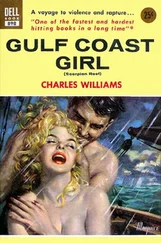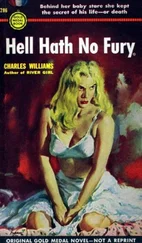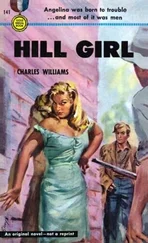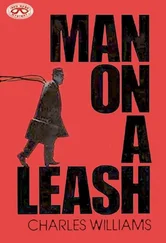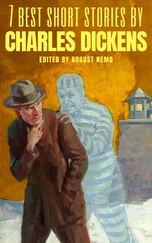Charles Williams - The Sailcloth Shroud
Здесь есть возможность читать онлайн «Charles Williams - The Sailcloth Shroud» весь текст электронной книги совершенно бесплатно (целиком полную версию без сокращений). В некоторых случаях можно слушать аудио, скачать через торрент в формате fb2 и присутствует краткое содержание. Год выпуска: 2010, Жанр: Старинная литература, на английском языке. Описание произведения, (предисловие) а так же отзывы посетителей доступны на портале библиотеки ЛибКат.
- Название:The Sailcloth Shroud
- Автор:
- Жанр:
- Год:2010
- ISBN:нет данных
- Рейтинг книги:3 / 5. Голосов: 1
-
Избранное:Добавить в избранное
- Отзывы:
-
Ваша оценка:
- 60
- 1
- 2
- 3
- 4
- 5
The Sailcloth Shroud: краткое содержание, описание и аннотация
Предлагаем к чтению аннотацию, описание, краткое содержание или предисловие (зависит от того, что написал сам автор книги «The Sailcloth Shroud»). Если вы не нашли необходимую информацию о книге — напишите в комментариях, мы постараемся отыскать её.
The Sailcloth Shroud — читать онлайн бесплатно полную книгу (весь текст) целиком
Ниже представлен текст книги, разбитый по страницам. Система сохранения места последней прочитанной страницы, позволяет с удобством читать онлайн бесплатно книгу «The Sailcloth Shroud», без необходимости каждый раз заново искать на чём Вы остановились. Поставьте закладку, и сможете в любой момент перейти на страницу, на которой закончили чтение.
Интервал:
Закладка:
I grabbed up the phone and put in the call again. After it had rung for three minutes with no answer I gave up.
“Here’s your ticket,” Bill said. “But I still think you ought to take the car. Or let me drive you down there.”
“If they picked me up, you’d be in a jam too. I’ll be safe enough on the bus, this far from the Miami terminal.”
It was after sunrise now, and we were parked near the bus station in Homestead, about thirty miles south of Miami. I’d shaved and changed into a pair of Bill’s slacks and a sport shirt, and was wearing sun glasses.
“Don’t get your hopes too high,” Bill cautioned. He was worried about me. “It’s flimsy as hell. She’d know whether her own father was dead or not.”
“I know,” I said. “But I’ve got to talk to her.”
“Suppose it’s nothing, then what? Call me, and let me come after you.”
“No,” I said. “I’ll call the FBI. I’m not doing myself any good, running like this, and if I keep it up too long Bonner and those other goons may catch up with me.”
The bus pulled in. Bill made a gesture with his thumb and forefinger. “Luck, pal.”
“Thanks,” I said. I slid out of the car, and climbed aboard. The bus was about two-thirds filled, and several passengers were reading copies of the Herald with my description on the front page, but no one paid any attention to me. There was no picture, thank God. I found a seat in the rear beside a sailor who’d fallen asleep, and watched Bill drive away.
In a little over an hour we were on Key Largo and beginning the long run down the Overseas Highway. It was a hot June morning with brilliant sunlight and a gentle breeze out of the southeast. I stared out at the water with its hundred gradations of color from bottle green to indigo and wished I could wake up from this dream to find myself back aboard the Orion somewhere in the out islands of the Bahamas. How long had it been going on now? This was—what? Monday? Only forty-eight hours. It seemed a month. And all it ever did was get worse. I’d started out with one dead Baxter, and now I had three.
And what would I prove, actually, if I did find out who he was? That wouldn’t change anything. It would still be my unsupported word against the rest of the world as to what had become of him and that money he’d said he had. I was beating my brains out for nothing. No matter how you sliced it, there was only one living witness, I was it, and there’d never be any more.
We passed Islamorada and Marathon. It was shortly after eleven when we rolled onto Spanish Key and pulled to a stop in front of the filling station and general store. I got down, feeling the sudden impact of the heat after the air-conditioning, and the bus went on. I could see the secondary road where it emerged from the pines about a quarter of a mile ahead, but I didn’t know which branch I wanted. A gaunt, leathery-faced man in overalls and a railroad cap was cleaning the windshield of a car in the station driveway. I called over to him.
“Holland?” He pointed. “Take the road to the left. It’s about a mile and a half.”
“Thanks,” I said.
For the first half mile there were no houses at all. The unsurfaced marl road wound through low pine and palmetto slash that was more like the interior of Florida than the Keys. From time to time I caught glimpses of water off to my right. Then the road swung in that direction and I passed near some beach houses and could see out across the half-mile channel separating Spanish Key from the next one to the westward. The houses were boarded up with hurricane shutters as if their owners were gone for the summer. I stopped to light a cigarette and mop the sweat from my face. All sound of cars passing on the Overseas Highway had died out behind me now. If she wanted an isolated place to work, I thought, she’d found it.
The pine began to thin out a little and the road swung eastward now, paralleling the beach along the south side of the Key. The next mailbox was Holland’s. The house was on the beach, about a hundred yards back from the road, with a curving drive and a patch of green lawn in front. It was large for a beach house, solidly constructed of concrete block and stucco, and dazzling white in the sun, with a red tile roof and bright aluminum awnings over the windows and the door. In the carport on the right was an MG with California license plates. She was home.
I went up the short concrete walk and rang the bell. Nothing happened. I pushed the button again, and waited. There was no sound except the lapping of water on the beach around in back, and somewhere farther offshore an outboard motor. About two hundred yards up the beach was another house somewhat similar to this one, but there was no car in evidence and it appeared to be unoccupied. There was still no sound from inside. The drapes were drawn behind the jalousie windows on either side of the door. The outboard motor sounded nearer. I stepped around the corner and saw it. It was coming this way, a twelve- or fourteen-foot runabout planing along at a good clip. At the wheel was a girl in a brief splash of yellow bathing suit.
There was a long low porch back here, another narrow strip of lawn, a few coconut palms leaning seaward, and a glaring expanse of white coral sand along the shore. There were several pieces of brightly colored lawn furniture on the porch and under the palms, and a striped umbrella and some beach pads out on the sand. The water was very shoal, and there was no surf because of the reefs offshore and the fact that the breeze had almost died out now. Far out I could see a westbound tanker skirting the inshore edge of the Stream. A wooden pier ran out into the water about fifty feet, and the girl was coming alongside it now.
I started out to take a line for her, but she beat me there. She lifted out a mask and snorkel and an under-water camera in a clear plastic housing, and stepped onto the pier.
She was slender and rather tall, a girl with a deep tan and dark wine-red hair. Her back was toward me momentarily as she made the painter fast. She straightened and turned then, and I saw her eyes were brown. The face was slender, with a very nice mouth and a stubborn chin, and was as smoothly tanned as the rest of her. There was no really striking resemblance to Baxter, but she could very well be his daughter.
“Good morning,” I said. “Miss Reagan?”
She nodded coolly. “Yes. What is it?”
“My name is Stuart Rogers. I’d like to talk to you for a minute.”
“You’re the man who called me this morning.” It was a statement, rather than a question.
“Yes,” I said, just as bluntly. “I want to ask you about your father.”
“Why?”
“Why don’t we go over in the shade and sit down?” I suggested.
“All right.” She reached for the camera. I picked it up and followed her. She was about five feet eight inches tall, I thought. Her hair was wet at the ends, as if the bathing cap hadn’t covered it completely, and tendrils of it stuck to the nape of her neck. It was a little cooler on the porch. She sat down on a chaise with one long smooth leg doubled under her, and looked up questioningly at me. I held out cigarettes, and she thanked me and took one. I lighted it for her.
I sat down across from her. “This won’t take long. I’m not prying into your personal affairs just because I haven’t got anything better to do. You said your father was dead. Could you tell me when he died?”
“In nineteen-fifty-six,” she replied.
Hardy had showed up in Miami in February of 1956. That didn’t allow much leeway. “What month?” I asked.
“January,” she said.
I sighed. We were over that one.
The brown eyes began to burn. “Unless you have some good explanation for this, Mr. Rogers—”
Читать дальшеИнтервал:
Закладка:
Похожие книги на «The Sailcloth Shroud»
Представляем Вашему вниманию похожие книги на «The Sailcloth Shroud» списком для выбора. Мы отобрали схожую по названию и смыслу литературу в надежде предоставить читателям больше вариантов отыскать новые, интересные, ещё непрочитанные произведения.
Обсуждение, отзывы о книге «The Sailcloth Shroud» и просто собственные мнения читателей. Оставьте ваши комментарии, напишите, что Вы думаете о произведении, его смысле или главных героях. Укажите что конкретно понравилось, а что нет, и почему Вы так считаете.
